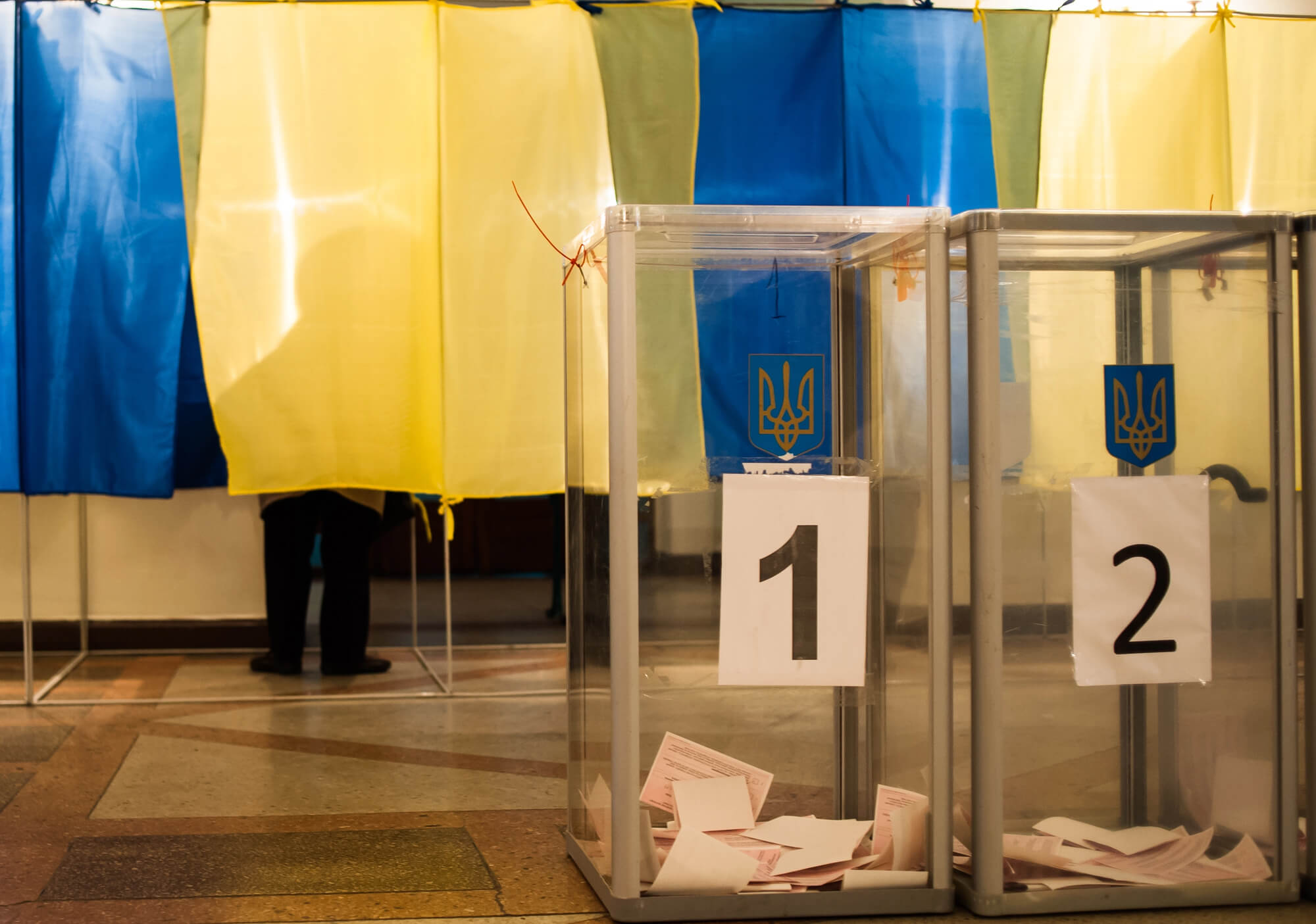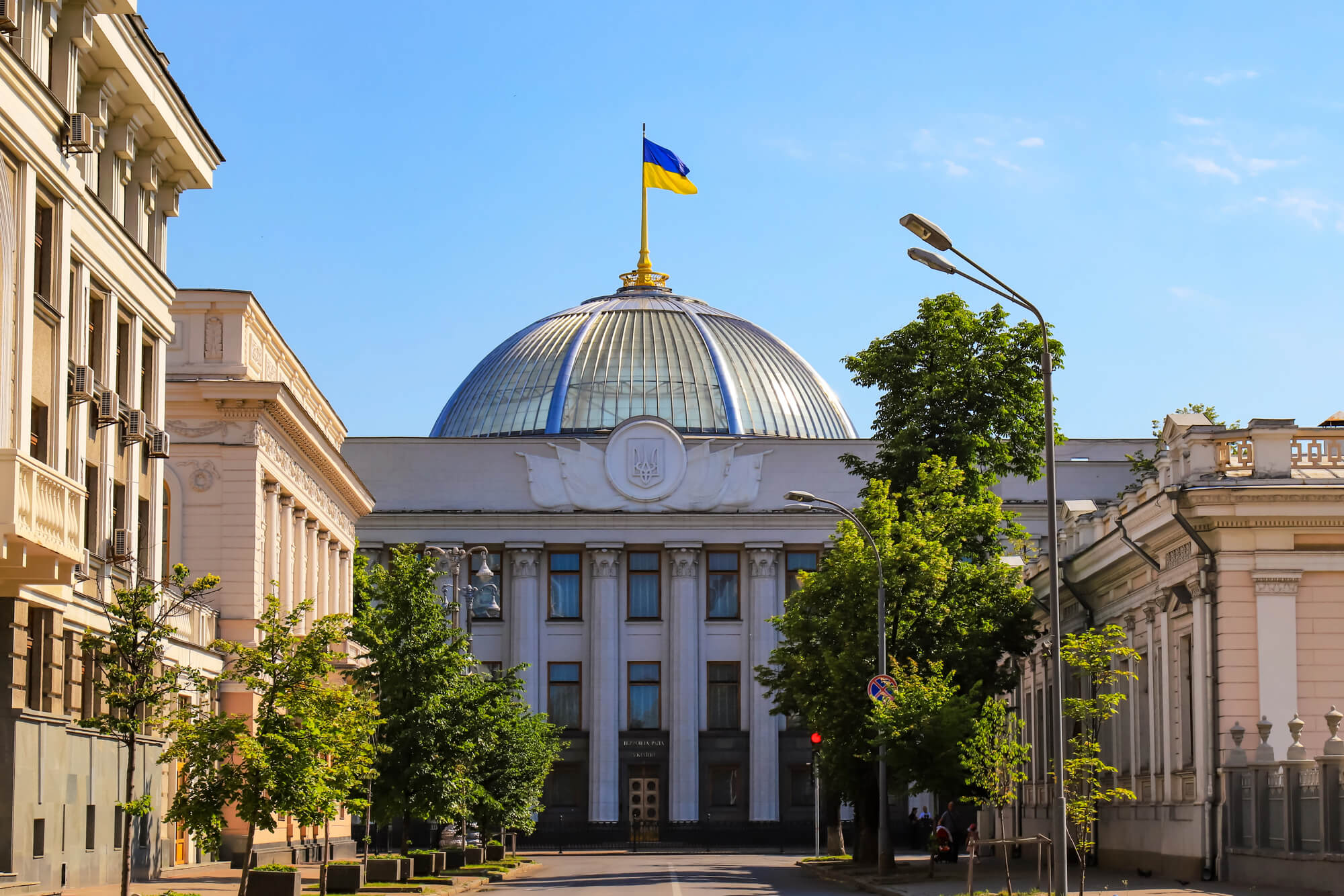There is a growing consensus that Vladimir Putin has abandoned his campaign to take control of east Ukraine. The fog of war, such as the killing of nearly 20 Ukrainian soldiers yesterday, is obscuring the distinct turn in the tide. Putin’s goal has changed from dismantling Ukraine as a united state to destabilizing Sunday’s presidential election in the east. Ukraine has a chance for a third lease on life. It cannot afford to blow this chance by returning to its old ways of governing. Ukraine’s third lease on life will likely be its last if wasted.
The noted Russian civil rights activist and political analyst, Lilia Shevtsova, wrote on her Facebook page that Vladimir Putin has “buried the New Russia project in a copper urn.” Businessweek headlines that Ukraine’s government has gained the advantage over the separatists. The New York Times cites the metalworkers’ retaking of Mariupol from the separatists as the turning point in the battle. An unauthenticated documen that is burning up the internet shows the military commander of separatist forces ordering up a plan for escape to the Russian border. To add icing to the cake, Ukraine’s richest man has just announced peace marches and demonstrations of honking automobiles throughout the Donbass against the so-called People’s Republic of Donetsk, whose leaders, he sarcastically notes, no one in the region knows or has heard of.
Quite a change from two weeks back.
On May 11, the self-appointed leaders of the self-proclaimed People’s Republic of Donetsk (PRD) were celebrating their referendum triumph. After all, 96.7 percent purportedly voted for independence in the Donbass’s second largest city (Mariupol), and large majorities were reported for Donetsk and Luhansk. They busied themselves with petitions to formally join the Russian Federation. Full speed ahead.
Fast forward a week and tell-tale signs started to indicate that the referendum was not a victory but a signal collapse. The sports analogy – momentum means everything – seems to apply here, and momentum shifted sharply and suddenly against the separatists.
Why has Putin buried – to use Shevtsova’s words – his campaign for east Ukraine in a copper urn?
First, the May 11 referendum put the nail in the coffin of Russia’s hopes to win the hearts and minds of the Russian speakers of east Ukraine. Without them on his side, Putin could not take the territory he wanted without regular troops.
Even the Russian media reported the referendum results with uncharacteristic restraint. According to the RIA Novosti account, the referendum contributes to “a dialog between Kiev and Luhansk and Donetsk as the most rational way to deescalate the situation and promote a legitimate presidential election.” (Earlier Putin railed against the presidential election. Why the change of heart?) The official Russian reaction to the PRD referendums was a far cry from the breathtaking annexation of Crimea after its referendum. Russia appeared not interested in a phony referendum to take Donbass.
Contrary to the muted Russian response, the Western media united in its dismissal of the referendum and its reported official results. The Economist, not noted for hyperbole, described the Donbass election as Ukraine’s bogus referendums.
Quite a different reaction from the Crimean referendum. Although the Western press and diplomatic corps condemned the violation of international law, they expressed reluctant “understanding” of Russia’s actions and conceded that the referendum represented the will of the people. (Wrong. For the actual Crimean results, see my Forbes article of May 5.) The Crimean annexation is not something Ukraine should let go without a fight.
The 24/7 drumbeat of pro-Russian and anti-Ukrainian propaganda did not shape east Ukrainian public opinion as hoped for, other than to frighten ordinary citizens. Various polls agree that, although 20-30 percent of east Ukraine is disaffected, its citizens still prefer a united Ukraine, rather than annexation into the Russian Federation. Putin hoped for another result, but he did not get his wishes.
Second, although the Ukrainian ATO (Anti-terrorist operation) has been erratic and at times bumbling, it is bound to improve over time. It has already succeeded in surrounding and neutralizing the Russian command and control centers of Slavyansk and Kramatorsk, manned by the same professionals from Russia and Ukraine who, by their own assertion (See Paul Goble’s Windows On Eurasia analysis), were part of the team that carried out the Anschlusss of Crimea. The ATO pits an army, albeit weak and undisciplined, against a few seasoned Little Green Men supported by largely drunken “volunteers.”
Note that Putin has ignored increasingly desperate pleas from the separatist leadership for assistance, such as the May 12 “first decree” of Colonel Igor Strelkov (aka Strelok, real name Girkin), who appeals to the Kremlin as follows:
“Given the urgency of the situation in the country, the genocide of the Donetsk population unleashed by the junta in Kyiv and the threats of intervention by NATO, I appeal to the Russian Federation to provide military assistance to the Dnepropetrovsk (sic Donetsk) People’s Republic.”
Five days later (May 17) a frustrated Strelkov appealed directly to the people of east Ukraine for assistance. Reading in a monotone before the cameras (See Strelkov YouTube), Strelkov castigated the cowardice of the men of the Donbass, who either sit fearfully at home, or use the weapons given them to “loot and maraud.” If the men are such cowards, let brave women step forward, challenged Strelkov. Such an ungrateful people after all we “volunteers from Russia and Ukraine” have done for you.
Putin’s unwillingness to reinforce the command and control center for all of east Ukraine means that separatist forces cannot turn back Ukraine’s assault. Putin cannot take significant swaths of east and south Ukraine without a stable base of operations run by professionals. He has abandoned them, and they see the writing on the wall. A hostage,released after three weeks of captivity, confirmed the low level of moral among the Little Green Men.
Third, while the separatist forces have concentrated their hard core assets in the smaller cities of Slavyansk and Kramatorsk, they have relied on agent provocateurs, protest tourists, paid demonstrators, and unknown self-appointed mayors and governors to destabilize the large cities. The degree of force and repression in Donetsk, Odessa, Luhansk, and Mariupol has been markedly less than in the smaller occupied cities.
Although Russian diversionists and their allies are able to disrupt the big cities and organize demonstrations that lead to violence and even loss of life, the big cities remain, albeit tenuously, in the hands of the Ukrainian government, which continues to carry out basic administrative functions. No one appears to know what goes on in occupied municipal buildings other than the planning of more unrest.
The “Little Green Men” behind the kidnappings, executions, torture, and human shields that characterize their operations in or around Slavyansk are a most unsavory lot. According to the Winnipeg Ukrainian Center’s study of Russian mercenaries in the Donbas, a number belong to the feared “Terek Wolves” of Russia’s Kuban region, have criminal records, had served with Russian intelligence services, and hold Slavic neo-Nazi beliefs and use Nazi symbols – strange backgrounds for these volunteers who purportedly came to save Ukraine from neo-Nazis.
Russia’s Little Green Men are the opposite of good will ambassadors for Mother Russia. (For a description of life inside Slavyansk, see Letter). Word gets around. Who in their right mind would want to spend the rest of their life in a country that allowed such monsters in positions of authority?
Fourth, the economic and political costs of the Donbass are high enough to give pause to any plans for annexation. (See my Putin’s promises could bankrupt Russia). The Donbass metallurgical complex requires large subsidies from Kiev as it stands, and these subsidies would grow if incorporated into Russia’s higher wages and pensions. The Russian Kuzbass complex has spare capacity and operates at much higher levels of efficiency. Also unnoted is that the energy-intensive Donbass consumes some 30 percent of Ukraine’s natural gas deliveries. Once the Donbass is part of Russia, Ukraine would have a real chance to reduce its dependency on Russian energy and the Donbass would qualify for the lower domestic gas prices.
On the political calculus side, the annexation of the Donbass would remove from the Ukrainian parliament its most pro-Russian legislators, leaving behind a solid anti-Russian super majority that would not hesitate to petition for EU and NATO membership – Putin’s greatest fear. The Kiev government would no longer worry about the sensitivities of pro-Russian regions, which had shown their distaste for Ukraine by leaving.
Fifth, the various businesses of Ukraine’s oligarchs cannot survive in the chaos and uncertainty of separatism. As long as the campaign proceeds, they would not know the financial and legal system in which they operated. They would understand that Putin and his inner circle stand ready to devour their assets, much as Yanukovich’s family did during his tenure. The risk of Russian dominance was just too great for Ukraine’s richest men and women. At some point, they had to step in to stop the nonsense.
The New York Times was among the first to emphasize the role of the oligarchs in the battle for east Ukraine. The leading oligarch of the east (Rinat Akhmetov) sat on the sidelines as long as possible, but he moved decisively when the separatists demanded that he pay taxes to them rather than Kiev. He mobilized his metal workers and their heavy equipment to clear separatists from the embattled city of Mariupol within 24 hours. (For Akhmetov’s statement in English and video with subtitles, go to his news release). Note that Akhmetov saw the light only after the rebels came to him demanding money. The oligarch-governor of neighboring Dnepropetrovsk understood the separatist danger from the start and crushed the separatist movement before it could start.
The Ukrainian oligarchs hold great sway over Ukrainian politics and the economy. They retain enough clout – if united – to stave off separatist attacks on their holdings. Akhmetov’s call for massive anti-separatist demonstrations is the coup de grace for Putin’s separatist campaign, and he knows it better than others. The turnout of protesters against the separatists became an immediate object of controversy, with Russian sources claiming low attendance and Radio Liberty claiming tens of thousands.
Sixth, although Putin and his associates belittle sanctions, they are clearly something to be avoided with the Russian economy headed for recession. Putin has played a cat and mouse game, retreating just before the threat of sanctions gets really serious. Putin held off sanctions by promising cooperation and by maintaining the fig leaf that he had no control over the separatists. However, he clearly understands that the incorporation of more Ukrainian territory into Russia would trigger real sanctions as would the disruption of the May 25 presidential election. Putin understands when it is time to retreat.
With a stalemate of force, Putin realises he can take valuable swaths of Ukraine only by introducing regular troops. Regular troops would likely be met with resistance, albeit disproportional, and the loss of Ukrainian lives would risk a dramatic turn of public opinion against him. Part of the reason for Putin’s adventurism was to get a boost from the pumped up patriotism of the Ukraine campaign. Ukraine blood on Russia’s hands could have cancelled all that in a minute.
Putin’s putting east Ukraine in a copper urn does not mean that he will give up his destabilization campaign. It remains important for him to be able to shrug off the presidential election results in the east of Ukraine as illegitimate. The most recent diversionary activity of Russian backed separatists is to threaten poll workers and to intimidate voters in the large and small cities of the Donbass. We would expect such activity to increase over the next few days as the election approaches. Putin will again claim he has no control over separatists and supports the presidential election while doing his best to sabotage it in the south and east. Count on a massive increase in violence. The fog of war will be intense and will belie the fact that the end is in sight. Russia will continue to destabilize, but the new government can get its act together and bring the separatist forces under control. There is no guarantee that Putin will not want to revisit the New Russia campaign at a later date.
Burning up the internet is the purported order of Colonel Strelkov, dated May 12. At the very end, he orders a plan for the escape of his special forces to the Russian border, there to be aided by Russian intelligence forces. Either authentic or a brilliant counter-diversionary forgery of Ukrainian intelligence, Strelkov’s order captures the moment better than any other image.
Colonel Strelkov’s Moscow apartment awaits him, unless Ukrainian security forces capture him first and put him on trial for murder. Putin is also enough of a student of Stalin to understand that he will need scapegoats. He will claim it was these out-of-control idiots who made such a mess of things. I do not know if Strelkov has more to fear from Putin, or from the Ukrainians.
Repost from Paul Gregory’s blog.
Attention
The author doesn`t work for, consult to, own shares in or receive funding from any company or organization that would benefit from this article, and have no relevant affiliations



